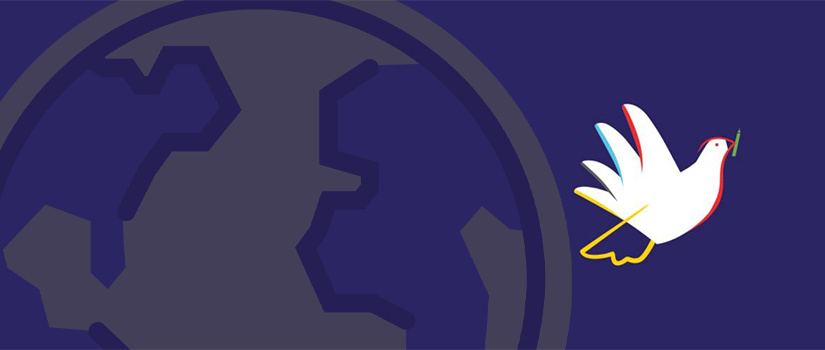The 30th anniversary of UNESCO’s World Press Freedom Day prompted more than 400,000 social media mentions and billions of views worldwide, according to the Social Media Insights Lab at the University of South Carolina.
The celebration unfolded May 2-4 in New York City and elsewhere. The theme, Shaping a Future of Rights, emphasized that countries with the highest levels of freedom of expression enjoy higher levels of protection for civil, political, economic and social rights.
The lab’s powerful Brandwatch Consumer Reports software identified 412,000 posts talking about the day in more than 90 languages. Most came from Twitter. The number of people who saw those posts was substantial. According to Brandwatch, posts on Twitter were seen 9.9 billion times! The comments came from world leaders, including Pope Francis, as well as private citizens.
“The interest this year was significantly higher than last,” said St Cyr Luttmer, lab coordinator. “We found 139,000 more posts mentioning the day than in 2022, an increase of more than 50 percent.”
Posts came from all over the world, with the largest concentration, 23 percent, in India. The United States, with 18 percent, was second. There were only 255 posts from Russia and 693 from China.
According to Brandwatch, the three Twitter authors with the most impact all were in India. Topping the list was an Indian dermatologist with the Twitter handle @theskindoctor13. He was followed by Mahua Moitra, a member of India’s parliament, and Amit Shah, another member of the Indian parliament. United Nations Secretary-General Antonio Guterres ranked fourth.
Many of the posts included the hashtag #WorldPressFreedomDay. Other terms frequently used included Evan Gershkovitz, the Wall Street Journal reporter who was arrested and is being detained in Russia, and Julian Assange, the founder of WikiLeaks. Assange is in jail in Britain and is facing extradition to the U.S. to face charges of espionage and computer hacking.
“More than 46,000 posts mention Assange,” said Luttmer. “Many media organizations have called for the charges to be dropped and for Assange’s supporters, World Press Freedom Day is an opportunity to campaign for his release.”
Almost three-fourths of the posts reviewed were in English. Spanish was the second most-used language followed by Arabic, Hindi and Urdu.
The Insights Lab also analyzed the Twitter accounts mentioned most frequently. @unesco topped the list followed by Reporters Without Borders and Rana Ayyub, an Indian journalist and opinion columnist for The Washington Post.
The Brandwatch software also captures and ranks emojis. The one used most often showed the British flag. The flags of many nations underscore the international nature of World Press Freedom Day.
The U.N. General Assembly proclaimed the first World Press Freedom Day in 1993. Each year since, on May 3, UNESCO has used the day to celebrate the fundamental principles of press freedom, to evaluate press freedom around the world, to defend the media from attacks on their independence and to pay tribute to journalists who have sacrificed and sometimes lost their lives in the exercise of their profession.
To conduct the survey, the lab looked at posts made between May 2 and 4 using search terms in six languages: English, Spanish, French, Russian, Chinese and Arabic. Most of the comments came from Twitter (93 percent) with 4 percent coming from news mentions and 2 percent from Reddit.
About the Social Media Insights Lab
The lab is part of the University of South Carolina College of Information and Communications. It is used for teaching, academic research and public reports intended to help people better understand issues of the day. View a full list of reports and follow the lab on Twitter at @UofSCInsights.
